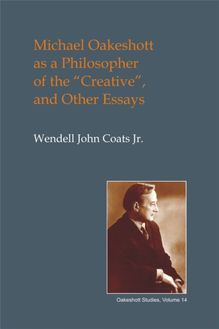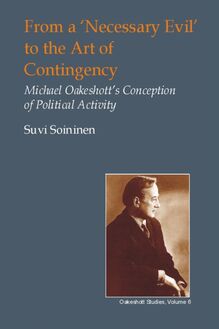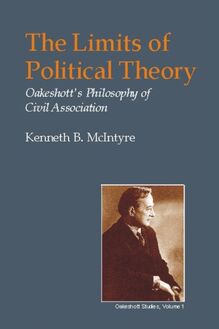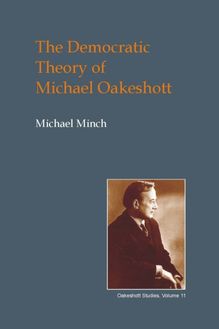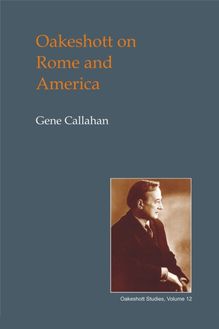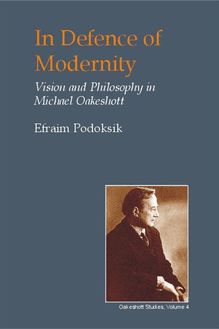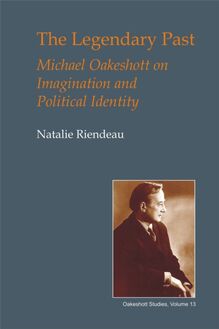-
 Univers
Univers
-
 Ebooks
Ebooks
-
 Livres audio
Livres audio
-
 Presse
Presse
-
 Podcasts
Podcasts
-
 BD
BD
-
 Documents
Documents
-
- Cours
- Révisions
- Ressources pédagogiques
- Sciences de l’éducation
- Manuels scolaires
- Langues
- Travaux de classe
- Annales de BEP
- Etudes supérieures
- Maternelle et primaire
- Fiches de lecture
- Orientation scolaire
- Méthodologie
- Corrigés de devoir
- Annales d’examens et concours
- Annales du bac
- Annales du brevet
- Rapports de stage
La lecture à portée de main
Vous pourrez modifier la taille du texte de cet ouvrage
Découvre YouScribe en t'inscrivant gratuitement
Je m'inscrisDécouvre YouScribe en t'inscrivant gratuitement
Je m'inscrisEn savoir plus
Vous pourrez modifier la taille du texte de cet ouvrage
En savoir plus

Description
Sujets
Informations
| Publié par | Andrews UK |
| Date de parution | 03 août 2016 |
| Nombre de lectures | 0 |
| EAN13 | 9781845405427 |
| Langue | English |
Informations légales : prix de location à la page 0,1124€. Cette information est donnée uniquement à titre indicatif conformément à la législation en vigueur.
Extrait
Title page
Michael Oakeshott on Hobbes
A Study in the Renewal of Philosophical Ideas
Ian Tregenza
IMPRINT ACADEMIC
Publisher information
2016 digital version converted and published by
Andrews UK Limited
www.andrewsuk.com
Copyright © Ian Tregenza, 2003, 2016
The moral rights of the authors have been asserted
No part of any contribution may be reproduced in any form without permission, except for the quotation of brief passages in criticism and discussion.
Imprint Academic
PO Box 200, Exeter EX5 5YX, UK
www.imprint-academic.com/idealists
Acknowledgements
This book is a revised version of a PhD thesis commenced at the University of Sydney and completed at the University of New South Wales. My thanks go firstly to Patricia Springborg who supervised the project in its early stages. Though the work took a different form than that originally envisaged, Patricia’s enthusiasm for the topic in its early formulations sustained me when I was trying to work out precisely what it was I wanted to say. My special thanks go to Conal Condren who supervised the thesis for the majority of the time I was at work on it. Conal provided a wealth of sound advice not only on Oakeshott and Hobbes, but on the range of interpretative issues a study such as this presents. To the extent that the book still contains deficiencies in this regard it undoubtedly stems from my not pursuing as adequately as I might have Conal’s always insightful suggestions .
By a happy coincidence while I was working on the thesis in Sydney , Glenn Worthington and Luke O’Sullivan were also working on Oakeshott at the Australian National University in Canberra. I have benefitted from a number of stimulating conversations with them and am grateful to Luke for providing me with some relatively inaccessible works by Oakeshott which I have used here.
At different stages of the project I have received helpful advice from David Boucher, Robert Orr, and Timothy Fuller. My thanks also go to Keith Sutherland from Imprint Academic who has been very helpful in preparing the manuscript for publication.
Finally, my son Thomas deserves special mention for providing me with the sort of distractions from academic work that only a toddler can, as does my wife, Bronwyn, for her wonderful support, companionship, and a number of shared adventures of which this book is just one.
Abbreviations
Oakeshott
EM
Experience and Its Modes (Cambridge: Cambridge University Press. 1933)
RP
Rationalism in Politics and Other Essays (Indianapolis: Liberty Press, 1991) ed. Timothy Fuller
OHC
On Human Conduct (Oxford: Oxford University Press, 1975)
HCA
Hobbes on Civil Association (Oxford: Basil Blackwell, 1975)
OH
On History and Other Essays (Oxford: Basil Blackwell, 1983)
Intro
Introduction to Hobbes’s Leviathan (Oxford: Basil Blackwell, 1960, originally published 1946)
TH
‘Thomas Hobbes’, Scrutiny, 4 (1935–6), 263–77
RPM
Religion, Politics and the Moral Life (New Haven and London: Yale University Press, 1993.) ed. Timothy Fuller
MPME
Morality and Politics in Modern Europe: The Harvard Lectures (New Haven and London: Yale University Press, 1993) ed. Shirley Robin Letwin
PFPS
The Politics of Faith and the Politics of Scepticism (New Haven and London: Yale University Press, 1996) ed. Timothy Fuller
VLL
The Voice of Liberal Learning: Michael Oakeshott on Education (New Haven and London: Yale University Press, 1989) ed. Timothy Fuller
CPJ
‘The Concept of a Philosophical Jurisprudence’, Politica , 3 (1938), 203–22, 345–60
Hobbes
Lev
Leviathan (Oxford: Basil Blackwell, 1960) ed. Michael Oakeshott
Introduction
I
Michael Oakeshott is widely recognized as one of the most significant political philosophers of the twentieth century. His contribution to twentieth century Hobbes scholarship is also acknowledged by Hobbes specialists to be of great importance. While most studies of Oakeshott have noted the significance of his reading of Hobbes for understanding his own political theory, few have given it the prominence that it deserves. [1] This study offers a reading of the major developments in Oakeshott’s theory in the light of his own changing reading of Hobbes. As Stephen Gerencser [2] has recently shown, despite Oakeshott’s early admiration for, and emulation of, writers such as Hegel, Bradley and Bosanquet, Thomas Hobbes is in fact the crucial figure behind the development of his political theory. Oakeshott’s interest in political philosophy seems to have coincided in the mid 1930s with an interest in Hobbes and he wrote substantially more on Hobbes than any other philosopher or political thinker. In all, Oakeshott wrote six essays on Hobbes or Hobbes interpretation. [3] Because they were written at different stages in his career it is possible to mark the changes in his reading and indicate the way they reflect certain changes in his own theory.
Oakeshott was not only one of the most original political thinkers of the twentieth century as well as one of its most astute, if selective, readers of Hobbes, he was also deeply reflective about the nature of interpretation itself. Like his contemporary Gadamer, Oakeshott considered the problem of hermeneutics to be more than an academic concern over the meaning of texts, but to be central to understanding what it means to be human. “Thinking”, he claimed, “is not a professional matter; if it were it would be something much less important than I take it to be” (EM 7). The human world, for Oakeshott, is a world of languages or modes of understanding which provide for us the terms of our experience. In order to clarify his philosophy of agency, morality, authority, history and religion, Oakeshott did not simply isolate each of these questions from the rest of human experience but proceeded by examining in a fundamental way the very nature of human understanding. Instead of asking questions of the type, ‘what is history?’, ‘what is science?’, ‘what is practice?’, as if history, science, and practice were all things separate from human participants, Oakeshott asks what it means to be an historian, a scientist, a practitioner. [4] True to the calling of the philosopher Oakeshott returned again and again to these fundamental questions - all the time clarifying, expanding, and reworking what he understood interpretation in its various modes to entail. Similarly, Hobbes emerges repeatedly in Oakeshott’s work each time with a slightly altered emphasis or a new line of thought developed. More than any other philosopher that he discussed, with impressive persistence Oakeshott sought to clarify the meaning and significance of Hobbes. Given that Oakeshott understood the thoroughly conditional nature of textual interpretation, the task of grappling with the meaning of Hobbes was never going to be one resulting in a final, definitive picture of the seventeenth century philosopher. I want to suggest that this body of work on Hobbes provides us with not only material which enriches our understanding of Hobbes but a useful perspective for making sense of Oakeshott’s own philosophical agenda. One way of clarifying this further is to ask the question what it was - in terms of his own understanding of the modal nature of interpretation - that Oakeshott was doing in interpreting Hobbes. Was it history, philosophy , philosophical history, [5] or myth building? [6] Though the answer to this question will, I hope, be clarified as I develop my argument, for the moment I simply want to suggest that analyzing Oakeshott’s practice as an intellectual historian, political theorist, polemicist (to miss this aspect of Oakeshott is to miss much), all of which find a fascinating focal point in his readings of Hobbes, helps clarify and points to the limitations of Oakeshott’s modal theory of human experience. In this work I want to bring these two aspects of Oakeshott’s writings together to see how each illuminates the other. I do not want to claim that everything that is distinctive and original in Oakeshott’s thought is really just an elaboration of his writings on Hobbes. Indeed, my approach prevents me from discussing in any great depth either Oakeshott’s aesthetics or the subtleties of his philosophy of history. Nor would I suggest that when he came to concern himself with Hobbes’s work Oakeshott in any simple sense just read his own set of priorities into Hobbes. Nevertheless , the affinities between Oakeshott’s Hobbes and Oakeshott himself extend all the way from a common set of philosophical assumptions and arguments concerning both the artificial and modal nature of human knowledge to a fully elaborated moral and legal theory.
II
Though Oakeshott’s reading has been of great interest to many Hobbes scholars, his approach to Hobbes should not be assessed purely in terms of its contribution to contemporary Hobbes studies. Oakeshott’s attitude to Hobbes seems to slide between straightforward scholarly interests and his own
-
 Univers
Univers
-
 Ebooks
Ebooks
-
 Livres audio
Livres audio
-
 Presse
Presse
-
 Podcasts
Podcasts
-
 BD
BD
-
 Documents
Documents
-
Jeunesse
-
Littérature
-
Ressources professionnelles
-
Santé et bien-être
-
Savoirs
-
Education
-
Loisirs et hobbies
-
Art, musique et cinéma
-
Actualité et débat de société
-
Jeunesse
-
Littérature
-
Ressources professionnelles
-
Santé et bien-être
-
Savoirs
-
Education
-
Loisirs et hobbies
-
Art, musique et cinéma
-
Actualité et débat de société
-
Actualités
-
Lifestyle
-
Presse jeunesse
-
Presse professionnelle
-
Pratique
-
Presse sportive
-
Presse internationale
-
Culture & Médias
-
Action et Aventures
-
Science-fiction et Fantasy
-
Société
-
Jeunesse
-
Littérature
-
Ressources professionnelles
-
Santé et bien-être
-
Savoirs
-
Education
-
Loisirs et hobbies
-
Art, musique et cinéma
-
Actualité et débat de société
- Cours
- Révisions
- Ressources pédagogiques
- Sciences de l’éducation
- Manuels scolaires
- Langues
- Travaux de classe
- Annales de BEP
- Etudes supérieures
- Maternelle et primaire
- Fiches de lecture
- Orientation scolaire
- Méthodologie
- Corrigés de devoir
- Annales d’examens et concours
- Annales du bac
- Annales du brevet
- Rapports de stage
